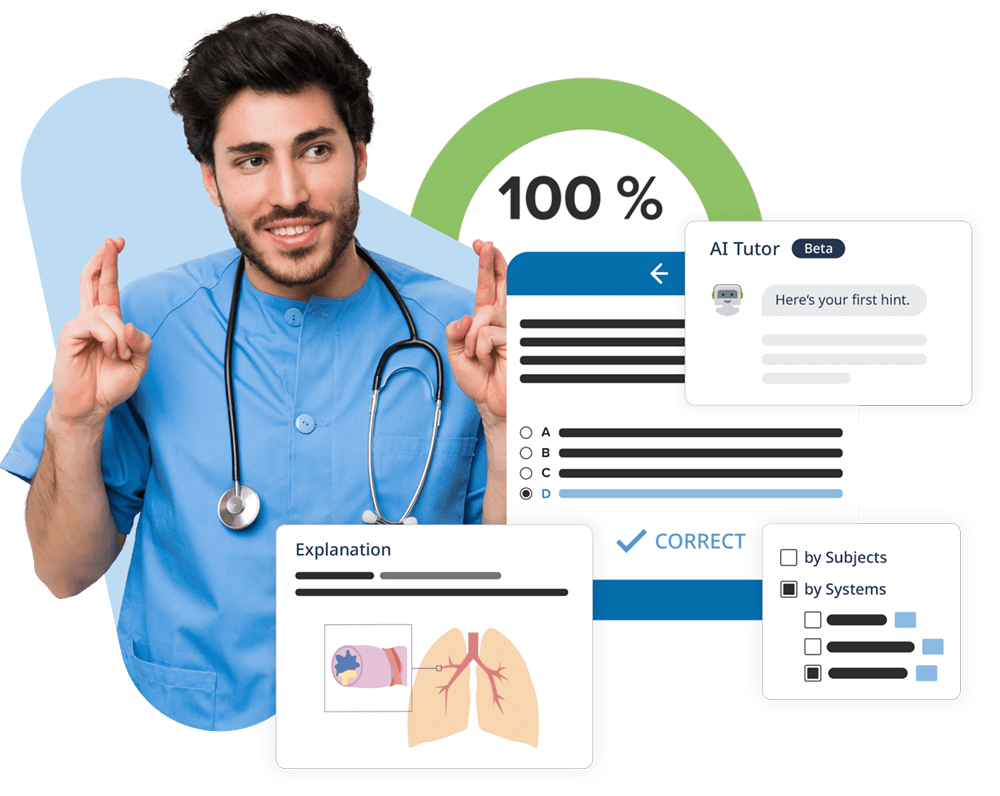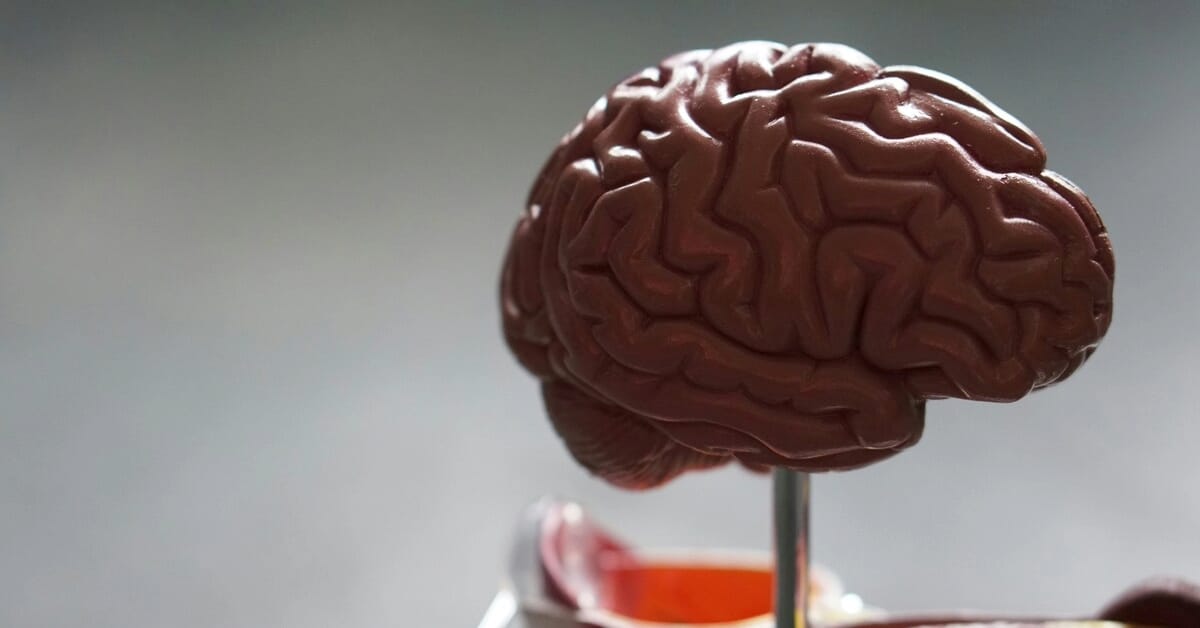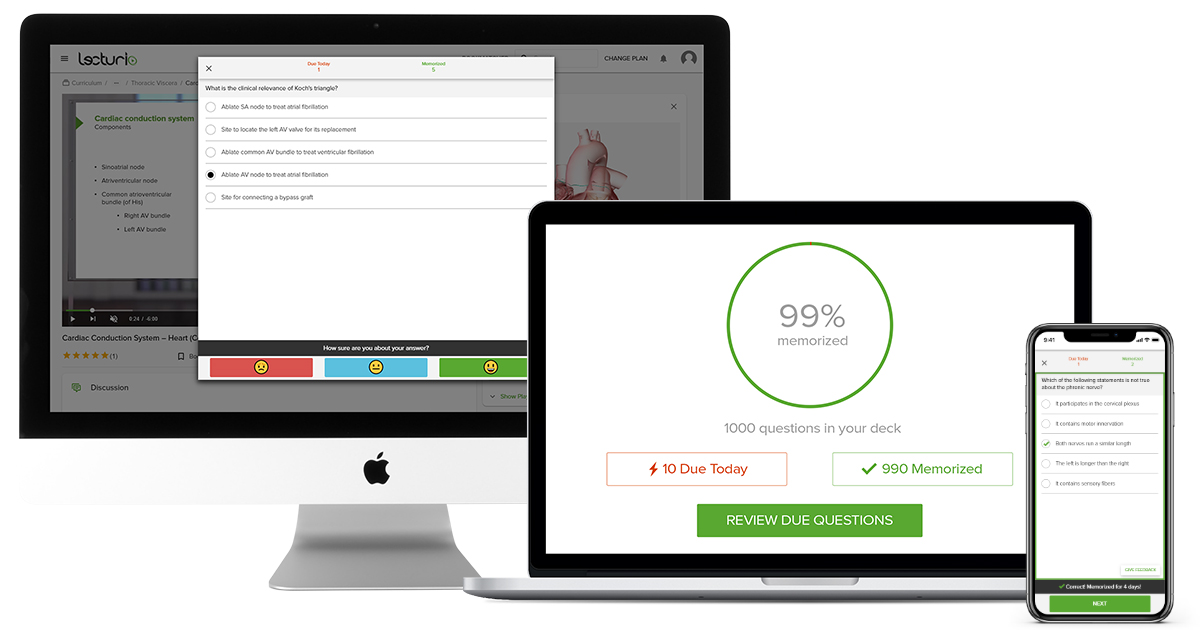Introduction: cognitive load theory and the problem of overwhelm when learning
Some people compare medical school to “drinking from a fire hose” as a striking metaphor for the incredible amounts of information you are confronted with and expected to absorb in any healthcare education setting.
While you cannot change the amount of material you have to learn or its complexity, there are ways to influence the way and setting you are learning in to try and make it easier on your cognitive capacity.
We are not robots with unlimited computing power – our brains are influenced by many things at once, and learning how to use your capacity for absorbing information more effectively can help you get less overwhelmed. One helpful concept that can serve as a basis for these strategies is cognitive load theory.
Cognitive load theory was originally developed by John Sweller in 1988. It analyzes how people learn and store new information and provides recommendations for instruction and teaching based on the understanding that working memory has limited capacity.
What is cognitive load?
Cognitive load is the amount of mental effort required to complete a task.
To understand cognitive load, you first need to know that there are two different types of memory:
- Long-term memory is what has been repeated and/or organized into your brain and may well be infinite.
- Working memory – the capacity for mental effort your brain is working with in this very moment, taking in information – is limited.
The theory is that working memory only holds seven (plus or minus two) elements at once, and processes only two to four elements at once. Additionally, when you take in new information with your working memory, you might lose almost all the new information you get within 20 seconds unless it is reinforced and organized into your brain’s long-term memory storage.
The problem at hand is: How can you avoid your limited working memory’s capacity from being overloaded when you are forced to take in large amounts of information and juggle way too many concepts in your mind at once? How can you keep from getting overwhelmed?
To address cognitive overload, you need to understand cognitive load first. There are three types of cognitive load:
- Intrinsic load: The intrinsic load of learning something is the difficulty of the particular topic you’re learning itself. Something easy will have a low intrinsic load, while learning a complex interconnected topic will have high intrinsic cognitive load.
- Germane load: Germane load is the effort needed to process information into long-term memory. This is a good one – since this is needed for long-term learning, you actually want more of this load!
- Extraneous load: Extraneous load is the mental capacity that is absorbed by processes not directly related to learning, e.g. using a difficult-to-use eLearning platform, or not hearing a lecturer properly. This takes effort that you ideally would use solely to understand and learn the material.
Cognitive overload symptoms and causes
Have you experienced cognitive overload before? Most of us have! Your working memory’s capacity running out can come with feelings of:
- Overwhelm
- Frustration
- Fatigue
- Anxiety
Cognitive overload can be caused by a myriad of factors and situations, and there are, unfortunately, plenty of opportunities for healthcare students to be thrown into cognitive overload. Here’s just a few examples:
- Text-heavy, chaotic presentation slides by your professor, making your lecture more confusing than informative
- Instructions in a clinical setting that sound totally overwhelming: Knowing all the individual concepts your instructor mentions is not enough – keeping it all in mind at once and making sense of it in the moment in a complex relationship to each other can cause cognitive overload if you lack the routine and experience to deal with all these topics. This comes up all the time when a more experienced professional talks to you about a patient and your mind starts reeling with all the background information about each thing they mention, and you simply can’t keep up.
- Questions that are beyond your scope of knowledge or experience, or routine – either on an exam, or at the bedside
- Preparing for an exam when the material covered just feels way too extensive
- Having to read and learn a big amount of new information at once
How to avoid cognitive overload
Here are 3 concrete practical strategies you can use in your studies to reduce cognitive overload. They are based on Mayer’s multimedia learning principles.
1. Reduce extraneous load: minimize processing of distractions
Imagine this: If your desk is stacked high with stuff, you will have a hard time being productive. Clearing it up and reducing the amount of things requiring your attention can streamline your energy onto what’s really important. So, you want to reduce your extraneous load.
Extraneous load can be anything that you need to pay attention to while studying that is not absorbing the actual information itself. This can mean dealing with a badly formatted textbook with font that is too small, looking at chaotic overloaded lecture slides, or jumping back and forth between different learning media.
Try to become aware of the thing that add to your extraneous load and try to reduce them, for example:
- When you label something, put the labels directly next to the image
- Keep order in your study materials
- Make sure you work with learning materials that make it as effortless as possible for you to take in the information. Do you learn better with videos? Check out Lecturio! Need diagrams? Find a learning resource that directly includes them instead of looking them up separately for each topic.
- Try to make the absorption of information as streamlined and smooth as possible for you, so that your mental capacity is not taken up too much by extraneous load.
2. Manage intrinsic load: focus on essential processing
Remember: Intrinsic load is the cognitive effort you spend on the actual task of taking in and processing the new information. This is where you want and need the majority of your effort to go, so you want to make this as effective as possible.
This is also where you already may run into cognitive overload if the material is just too complex and multi-layered and causes your working memory to “overflow.”
One way of avoiding this is grouping things/chunking. When you chunk pieces of information into groups and remember the groups, you are tricking your brain into needing to remember less individual items. For example, group chest pain causes into cardiac/pulmonary/GI/MSK/mental health. Mnemonics help too, like OLD CARTS for patient history taking.
The more you chunk knowledge together and perceive a group of knowledge items as only one item in your mind, the easier and less overwhelming it becomes for your working memory to think about multiple things and complex combinations of concepts at once.
Another basic method is to always go from simple to complex: Master basic concepts before you move to the details of the next level that builds on these basics.
3. Optimize germane load: direct effort to learning effectively
Germane load is the effort needed to move information from your working memory to long-term memory. This takes energy and focus, but is essential for learning! Allocating energy and attention to this kind of cognitive load will help your learning be more effective and overall reduce your cognitive load later. Sometimes, this is called “desirable difficulty.”
One way of focusing on this aspect is by using the variability principle: Look at concepts you are learning through different contexts. Apply your newly learned information to various example cases. Through the application of a concept to different situations, it gets cemented in your mind and easier to process in your working memory when encountering it in new situations.

Apply your knowledge to board-style cases in Lecturio’s Qbanks
Conclusion
Becoming a healthcare professional will be overwhelming at times. But if you regularly feel like your brain is about to explode, try looking into strategies to actively reduce your cognitive overload. Identifying changeable factors that contribute to it and adjusting them can help you get through the mountains of information more smoothly!




